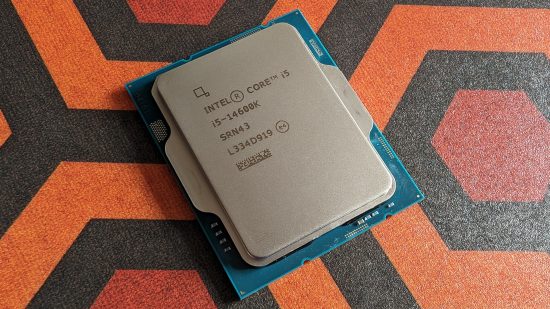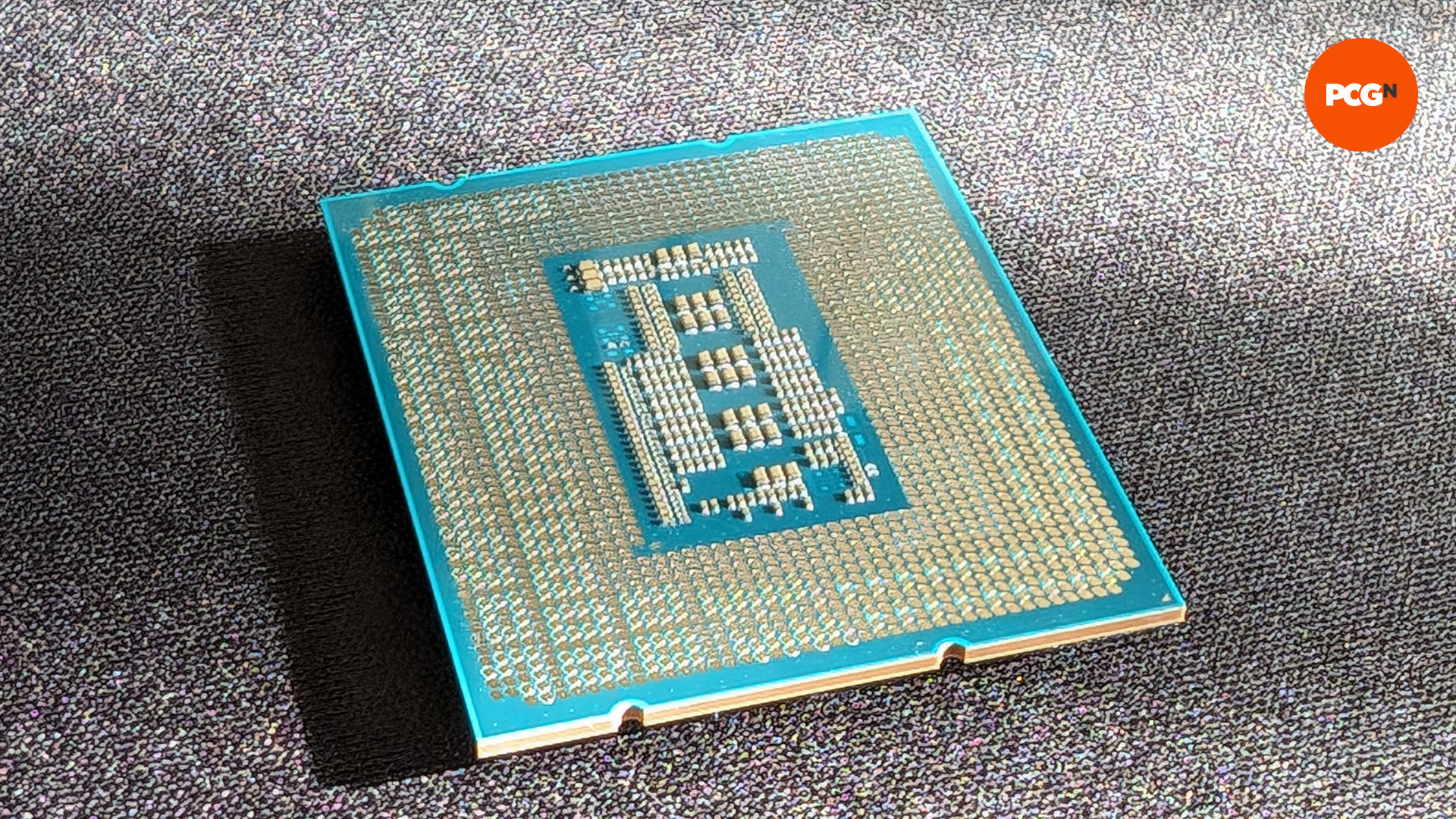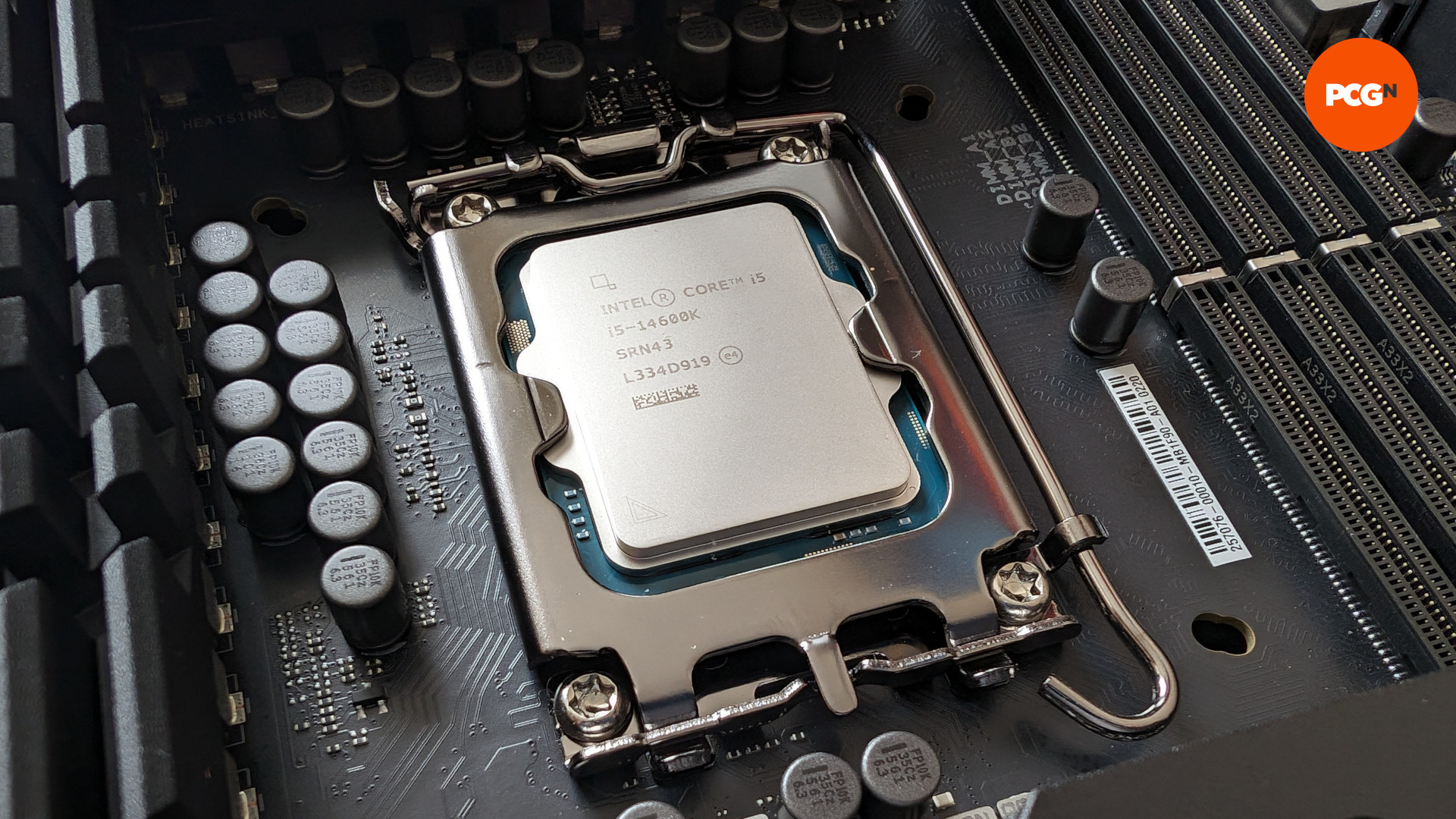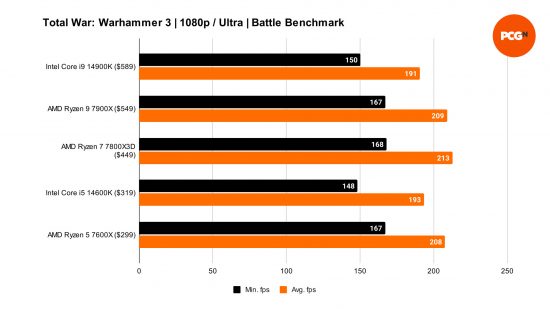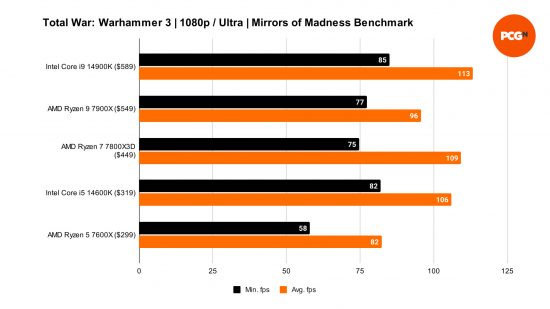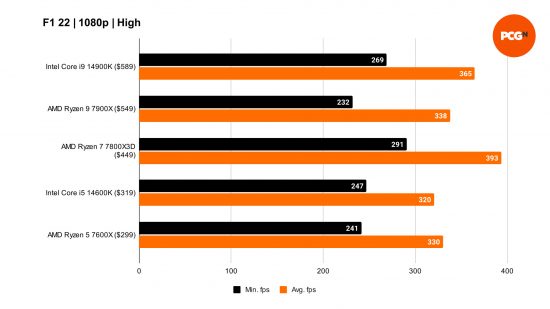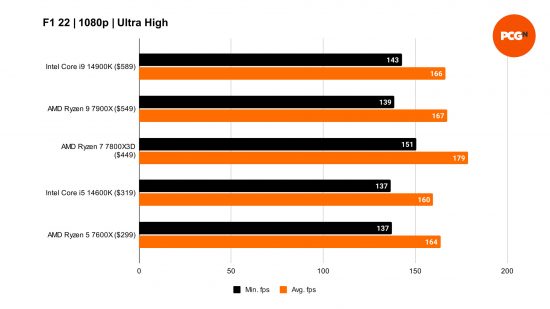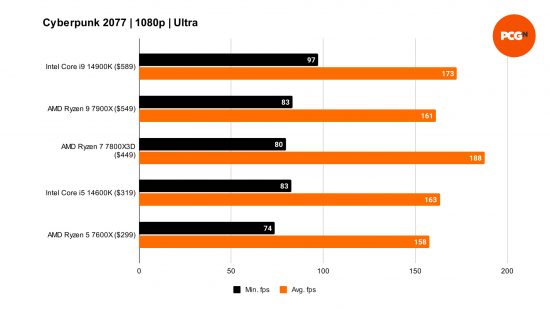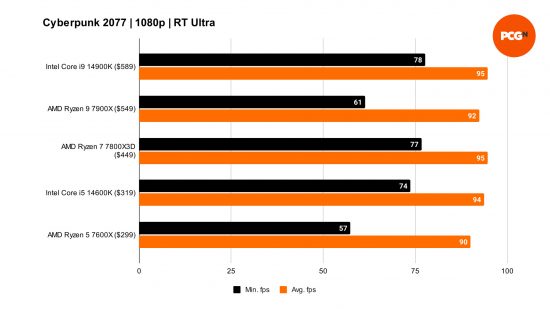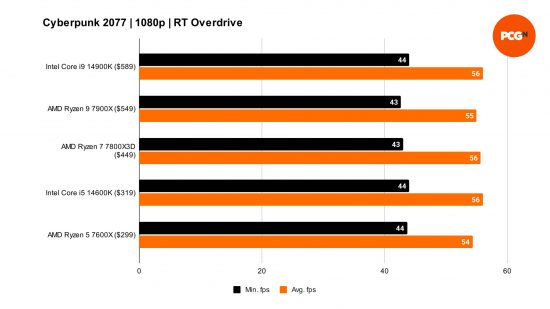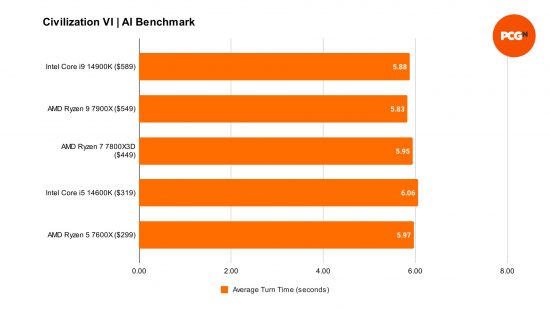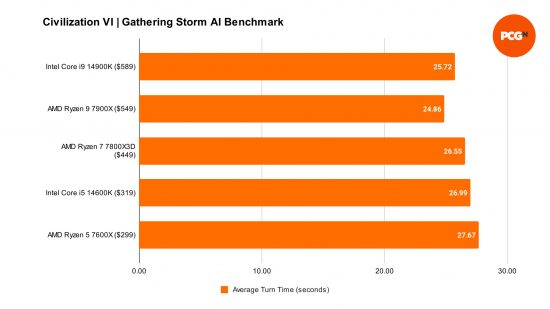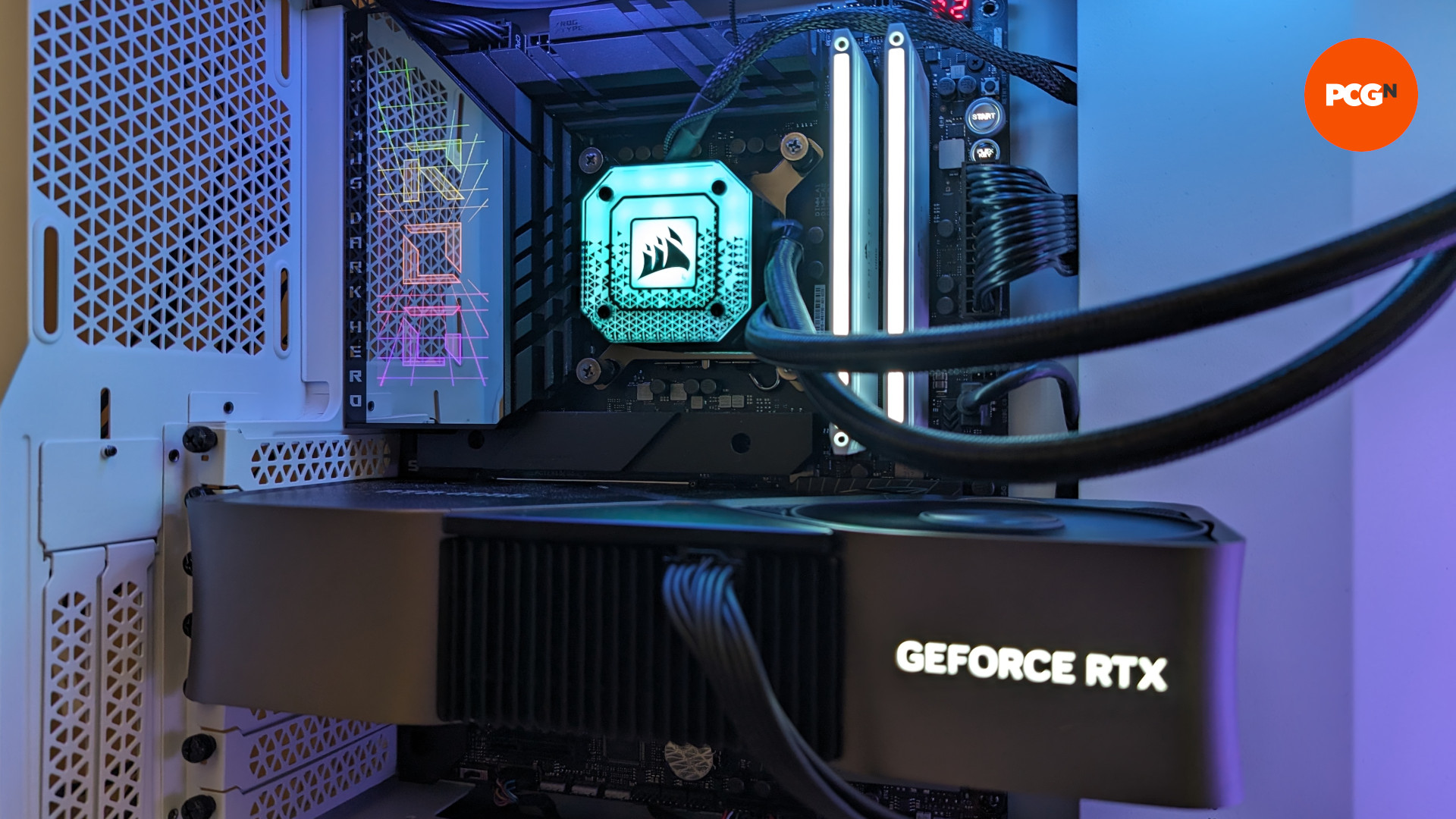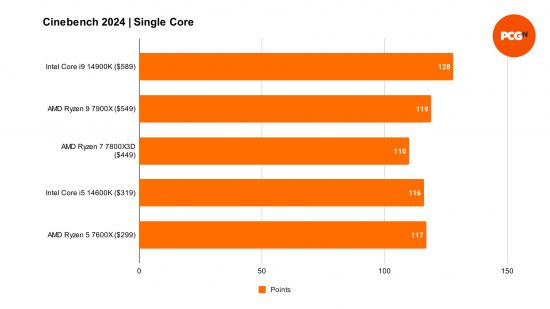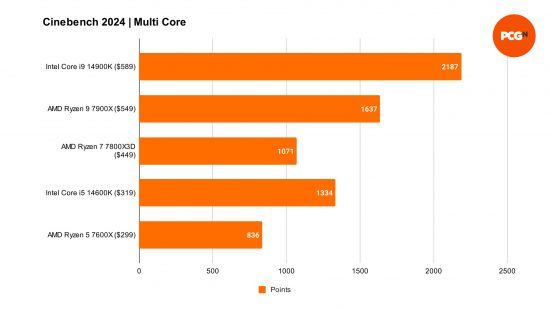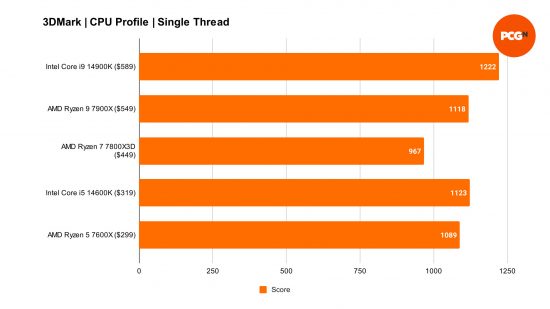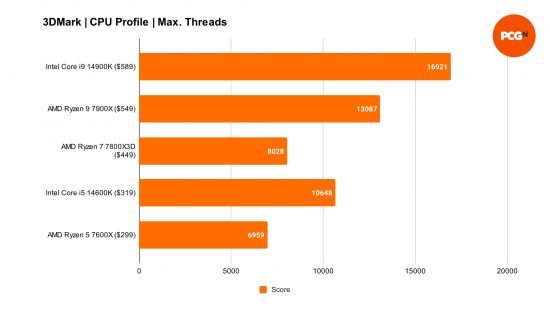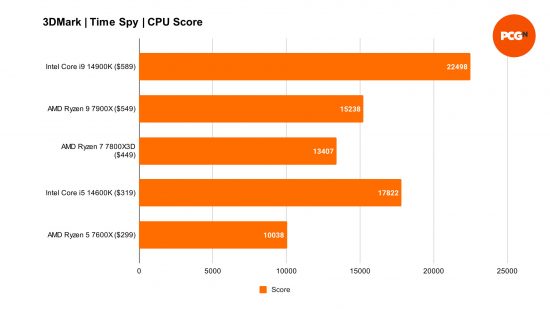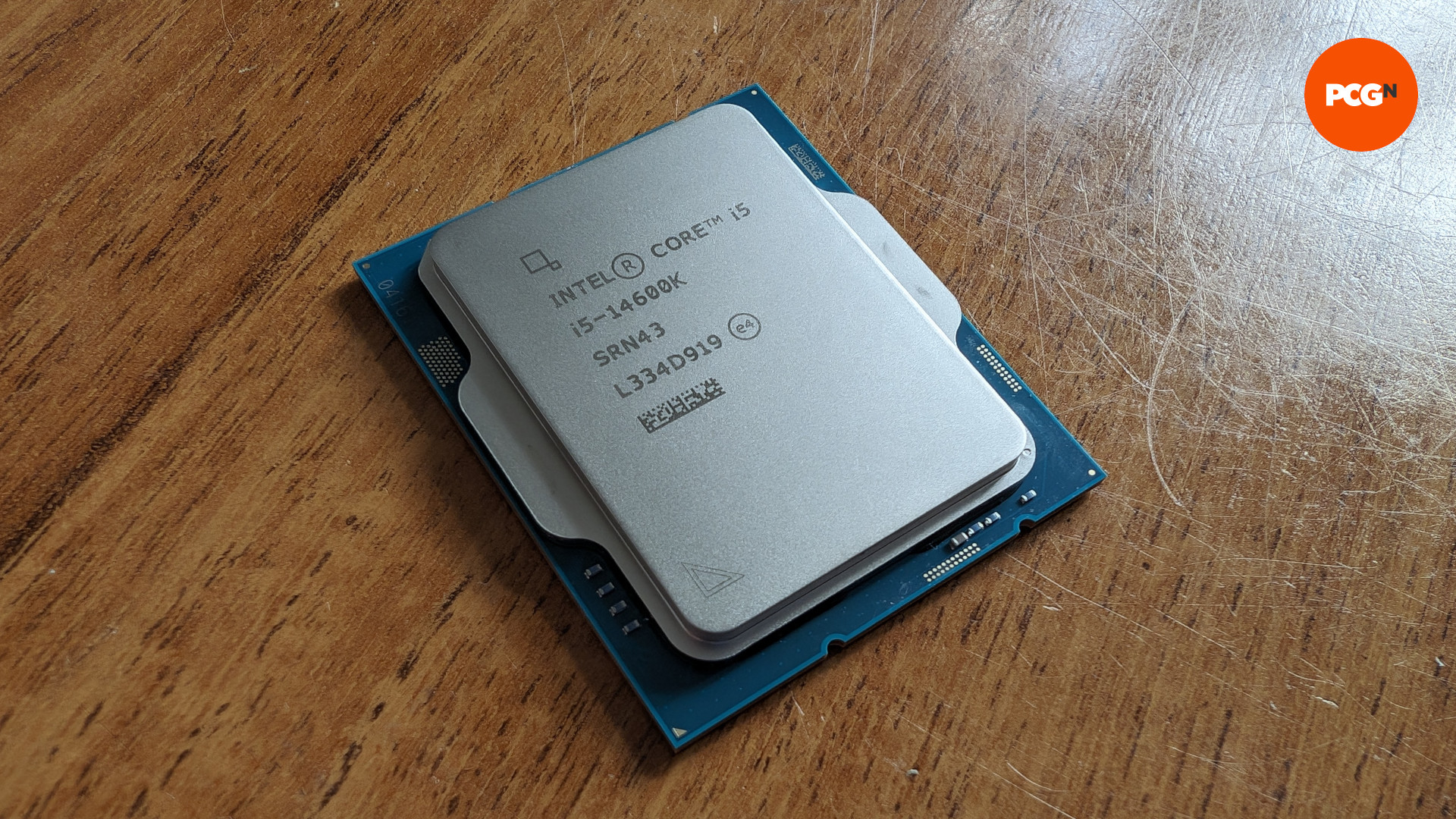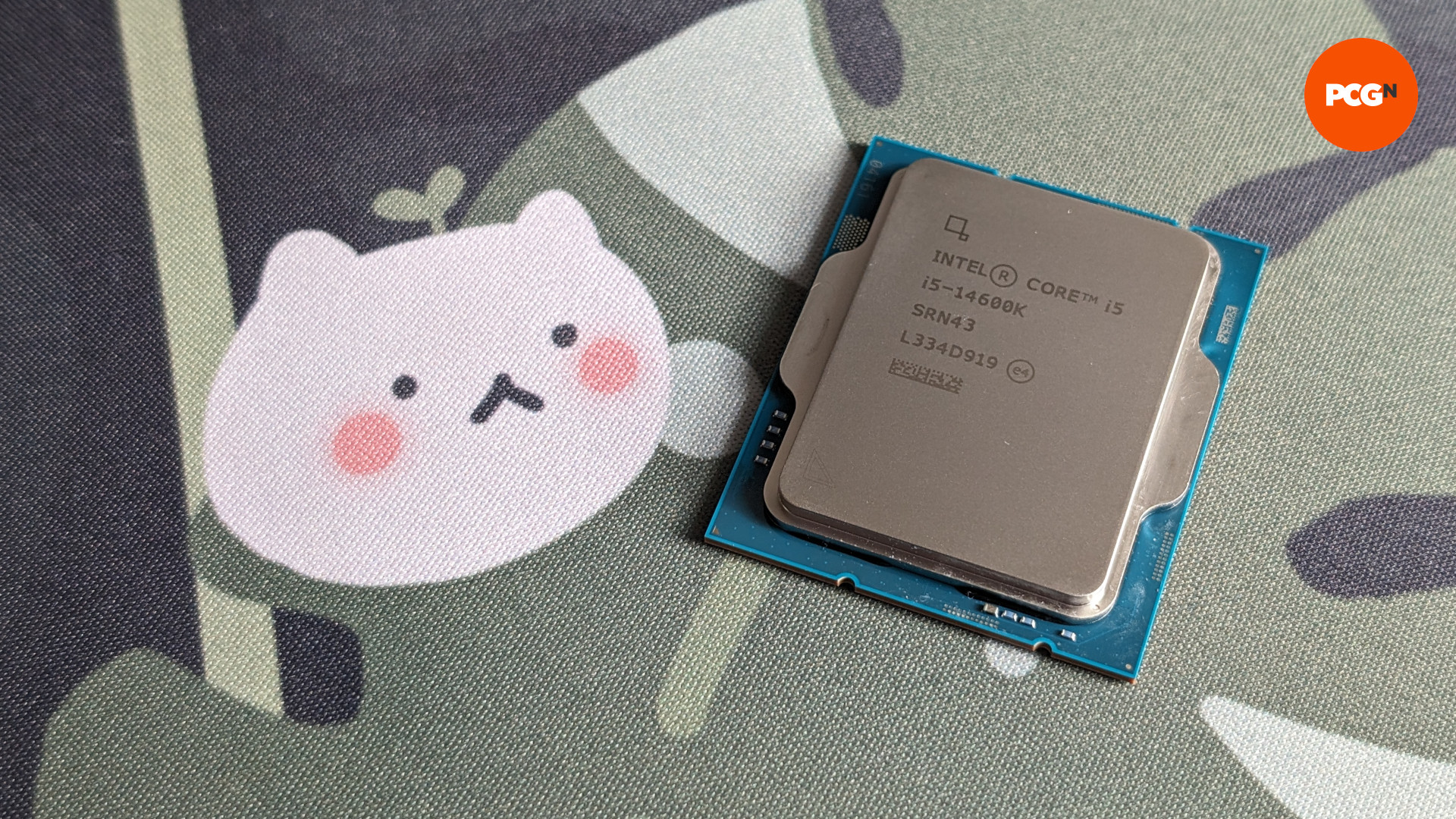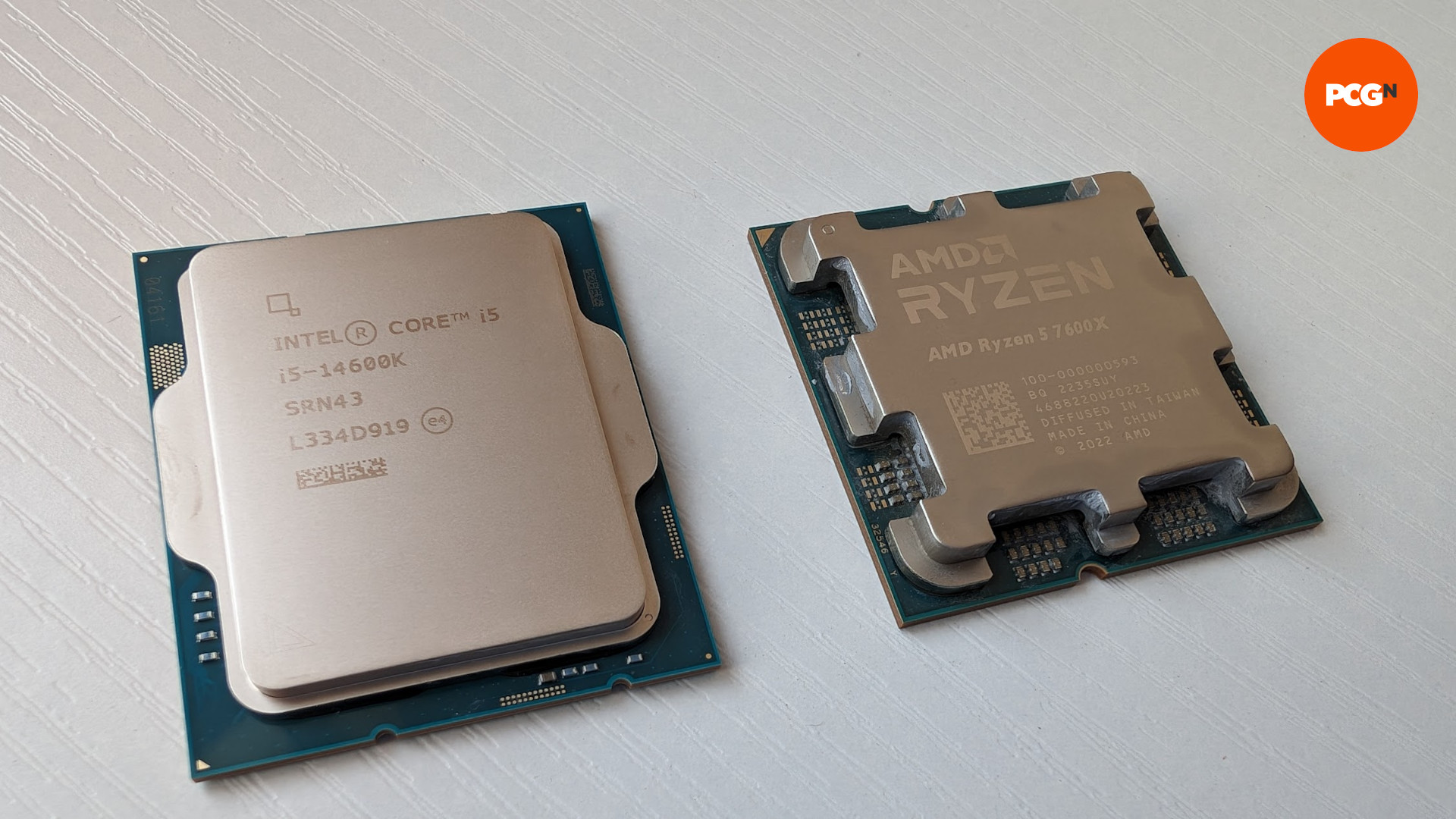Our Verdict
The Intel Core i5 14600K falls short of reaching its rightful place as the midrange CPU champion, not because of its specifications, but because it simply doesn't push the boat out far enough from the previous generation.
The Intel Core i5 14600K carries on the tradition of its Alder Lake and Raptor Lake predecessors, in that it’s a surprisingly perky midrange gaming processor that offers good levels of performance in gaming and creative applications. However, despite being a new generation in name, this CPU and its siblings can’t escape the reality that they offer little in terms of generational improvements, performing more like a refresh in practice.
I’ve been testing the Intel Core i5 14600K for just under a week now, nesting the chip inside the newly launched ASUS ROG Maximus Z790 Dark Hero motherboard. In that time, it’s certainly proven its worth as one of the best gaming CPUs you can buy today, even if I do have some reservations surrounding its immediate and overall value.
Pros:
- Solid gaming performance
- Surprisingly strong for creative applications
- Same price as 13th gen
Cons:
- Small generational improvement
- Not as power-efficient as AMD competition
- No included cooler
Specs
The Core i5 14600K specs remain predominantly unchanged from the previous generation, to the point that there’s only one difference here worth discussing: clock speeds.
The same 14-core configuration of eight performance cores (P-Cores) and six efficiency cores (E-Cores) return, providing 20 available threads in total. However, each core type can now push performance a little further, thanks to a 200MHz boost to maximum turbo frequencies on the P-Cores and a 100MHz increase on the E-Cores, versus the Core i5 13600K.
Intel Core i5 14600K specs:
| Socket | LGA 1700 |
| Cores (P+E) | 14 (6+8) |
| Threads | 20 |
| Base Clock (P / E) | 3.50GHz / 2.60GHz |
| Max. Turbo Freq. (P / E) | Up to 5.30GHz / 4.00GHz |
| L2 Cache | 20MB |
| L3 Cache | 24MB |
| TDP | 125W |
Other improvements include support for Wi-Fi 7 and Bluetooth 5.4, as well as the oncoming Thunderbolt 5. Intel has also increased available XMP speeds above 8,000MT/s, for those of you with the best gaming RAM at your disposal.
Even on paper, the Core i5 14600K doesn’t seem all that different from its forebear, and the same holds true in practice. I would describe this as a problem across the 14th-generation stack, as the Intel Core i9 14900K shares these issues, although the Intel Core i7 14700K has actually received an uplift in core count.
Benchmarks
For our Intel Core i5 14600K benchmarks, I’ve paired the CPU with an Nvidia GeForce RTX 4080 graphics card in order to eliminate GPU bottlenecks across rasterization and ray tracing tests. All frame rate data for games was captured at native 1080p to help further ensure the CPU is the bottleneck, not the GPU, and I’ve also included synthetic tests from 3DMark and Cinebench 2024. Additionally, all comparison data was freshly captured for this review, with mirrored specifications apart from the motherboard and processor.
Here are the specs of our test system:
- CPU: Intel Core i5 14600K
- Motherboard: ASUS ROG Maximus Z790 Dark Hero (BIOS v052)
- RAM: Corsair Vengeance 32GB (2 x 16GB) DDR5 6,000MHz
- Cooler: Corsair iCUE H150i Elite Capellix XT
- GPU: Nvidia GeForce RTX 4080
- Driver: GeForce Game Ready – WHQL (537.42)
- OS: Windows 11 Pro 22H2 (22621.2428)
- SSD: Samsung 990 Pro 4TB
- PSU: Corsair RMx SHIFT Series 1000W
- Case: Corsair 5000D RGB Airflow
Unsurprisingly, the Core i5 14600K comes out strong in comparison to its closest competition, the AMD Ryzen 5 7600X, in our test suite of games. In fact, the only real loss for the CPU is in the Total War: Warhammer 3 ‘Battle’ benchmark, and it otherwise allows our Nvidia GeForce RTX 4080 to flex its pixel-pushing power better than the AM5 chip.
Staying with the strategy game for a moment, the newly launched and much more performance-intensive ‘Mirrors of Madness’ benchmark places the Core i5 14600K confidently ahead of the Ryzen 5 7600X, both in average and minimum frames per second. To be clear, this is partly to be expected, as Warhammer 3 is an Intel-sponsored title, but the gap between the two CPUs is pronounced.
Turning to F1 22, the 14600K and 7600X are within spitting distance of one another, both at ‘High’ and ‘Ultra High’ settings. The same remains true in Cyberpunk 2077 using its ‘RT Overdrive’ preset, proving both processors are more than capable of handholding your graphics card through path-traced workloads.
However, the balance shifts in favor of the 14600K when swapping down to ‘RT Ultra’ in Cyberpunk 2077. The 1% lows provided by the Intel chip are far more consistent than the 7600X and even the AMD Ryzen 9 7900X, with performance much closer to the AMD Ryzen 7 7800X3D.
Finally, the 14600K enjoys a lead just shy of a second over the 7600X in Civilization VI, with turn times that are sure to please any fan of the series.
Where the Core i5 14600K shines in gaming, it glistens in creative and productivity workloads too. Examining our Cinebench 2024 results shows there’s a small difference between Intel and AMD when it comes to single-core performance, but neither the 7600X nor the 7800X3D can compete with the multi-core power of the 14600K.
This trend continues in the 3DMark CPU Profile benchmark, in which the relatively small gap in single-thread abilities turns into a chasm when all threads are made available. Time Spy shows that generally speaking, the Core i5 14600K has so much to offer games that can properly utilize its cores.
In my testing, I observed a maximum power draw of 188W during the Cinebench 2024 multi-core benchmark. Gaming saw similarly high power draws, with Cyberpunk 2077 proving the most thirsty work for the processor at 162W.
Even with so much wattage running through it while under load, the 14600K rarely thermal throttled, with the only instance I saw being the same Cinebench 2024 multi-core test forcing it to drop its core clocks by 300MHz. This was with a 360mm AIO attached too, specifically the Corsair iCUE H150i Elite Capellix XT, so your mileage may vary with a less capable cooler.
Price
The Intel Core i5 14600K price is $329 / £325, mirroring the cost of its 13th gen equivalent. It is also available without integrated UHD 770 graphics, as the Intel Core i5 14600KF, for $304 / £300.
While I’m glad Intel didn’t increase prices here, as the 14600K doesn’t offer anything substantial enough to warrant higher costs, it does leave the 14th gen chip in an awkward spot. Given how little has changed versus the 13th gen, it’s hard to justify buying the current generation versus a discounted last-generation chip.
Naturally, this will become less of a problem as older Alder Lake and Raptor Lake stock dry up, but the immediate value presented by the 14600K is hampered by the state of the market.
Placing the Intel Core i5 14600K against the AMD Ryzen 5 7600X, it’s clear to me that the former is the superior processor for just about everything. That is, of course, if the thought of your chip guzzling some more watts doesn’t bother you.
Verdict
There’s no denying that the Intel Core i5 14600K is a solid all-around performer, capable of handling any game or application you throw at it with relative ease. However, this was true of the 13600K, and there’s little separating the two CPUs.
Unfortunately, the marginal performance improvements offered by the 14600K leave it hard to recommend while there is still plenty of now-discounted 13th-generation stock readily available.
Truth be told, I think Intel could have been better off releasing the 14600K as a 13600KS, for a slightly higher price. I would happily take the higher clock speeds for a higher price while accepting that this is ultimately a refined 13th-generation chip rather than a generational leap. As a 14th gen product, though, it’s a bit underwhelming.
Alternatives
Intel Core i5 13600K
As I’ve alluded to throughout this review, the 14600K is in many ways identical to the Intel Core i5 13600K. Aside from some differences in maximum turbo frequency and support for the latest Wi-Fi, Bluetooth, and Thunderbolt specs, they’re the same CPU with extremely similar performance profiles. Expect to find it slightly cheaper than the 14th gen CPU that’s replacing it, if not now, then in the coming weeks.
AMD Ryzen 5 7600X
The AMD Ryzen 5 7600X often mirrors the frame rates offered by the Intel Core i5 13600K but is available for slightly less money with a $299 MSRP. Given how long the processor has been available, you can often find it for much less, making its value much higher.
Read our AMD Ryzen 5 7600X review to learn more.
